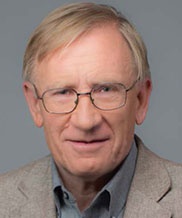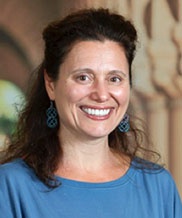Trust and Transparency in Human – AI Collaborations
Trust, Transparency & Technology
Spring Panel Series
CERAS 101, Stanford University
Wednesday May 30 and Tuesday June 5
4:30pm-6:00pm
Free & Open to the Public As Space Permits
Information technologies are expanding the parameters of media, pervading our environments, our systems, and our daily lives. The direct connection between people and their data is now brokered via algorithms. Machine learning, pattern recognition, and sensor driven applications play out behind the scenes. Understanding the conditions that help to build trust is a worthy challenge for the open, non-linear, multi-faceted, and globally connected world we live in.
Trust, Transparency & Technology is a series of panel discussions that delve into the research, concepts and tools that may help create open collaborations in a world of automated intelligent agents, algorithm-driven interactions, and machines that can learn what humans can’t explain.
Please join us as we bring together a diverse set of thought leaders from the Stanford community and industry to explore perceptions of trust, transparency and technology – in interdisciplinary research, human and AI collaborations, personalized algorithms and multi-sided data markets. Topics will include:
Trust and Transparency in Interdisciplinary Research Collaborations
Trust and Transparency in Human – AI Collaborations
Trust and Transparency in Personalized Algorithms
Never Miss An Event; Join Our Email Community
Presenters

Gunnar Carlsson is one of the most renowned mathematicians in the world. He is co-founder and President of Ayasdi, and was Chair of Stanford University’s Department of Mathematics from 1995 -1998. Gunnar has taught at the University of Chicago, University of California, Princeton University, and Stanford University, where he has been a thought leader in a branch of mathematics called topology, the study of shape. Gunnar pioneered the applied use of topology to solve complex real world problems. This work led to $10M in research grants from the National Science Foundation (NSF) and DARPA to study the application of Topological Data Analysis (TDA) to problems of interest within the U.S. government. In 2008, Gunnar, co-founded Ayasdi, building enterprise class AI for real world challenges.

Ranjay Krisha is a PhD candidate in Stanford's Artificial Intelligence Laboratory. His research interests lie at the intersection of artificial intelligence, computer vision, machine learning and human-computer interaction. Ranjay has been leading the Visual Genome project, which aims to serve as a source of continually expanding structured visual knowledge. Ranjay and his team were recently awarded the 2018 Brown Institute Magic Grant to create an AI agent that can engage people through conversations to learn new concepts it doesn't already know. Ranjay holds a Bachelor's degree in Electrical & Computer Engineering and Computer Science from Cornell University, and a Master's in Computer Science from Stanford. His Masters Thesis on “Visual Genome: Crowdsourced Visual Knowledge Representations” won the Christofer Stephenson Memorial Award for best Stanford CS Thesis in 2016.

Henriette Cramer is a research team lead at Spotify, focused on the human side of Machine Learning. Her research focuses on voice interactions, and algorithmic bias. She is particularly interested in decisions that affect Machine Learning outcomes, the feedback loop between data and design, and the (mis)match between humans’ and machines’ models of the world around them. She enjoys pragmatic approaches to translating research insights into practice, and combining insights from product studies into a larger strategic picture. She has led research in voice, bot and recommendation contexts, and prior worked at Yahoo, and the Swedish Institute of Computer Science. Her PhD from the University of Amsterdam specializes in people’s responses to autonomous systems.

Ryan Welsh is the founder and CEO of Kyndi, an artificial intelligence company building the first Explainable AI™ platform for government, financial services, and healthcare. Kyndi exists because critical organizations cannot use “black box” machine learning when they are required to explain the reason for any decision. Kyndi is considered one of the 100 most innovative AI startups in the world by CB Insights. Ryan has a B.S. Degree from The Catholic University of America, a MS in Applied Mathematics and Economics from Rutgers University, and an MBA from the Mendoza College of Business at the University of Notre Dame.

Karina Alexanyan is the Member Benefits Manager with mediaX at Stanford University and moderator of the panel series. Dr. Alexanyan’s research background is in global social media networks, technology, and education. She has consulted for leading academic, corporate and non-profit clients, including Stanford, Harvard and Columbia Universities. Alexanyan holds a PhD in Communications from Columbia University, a M.A. in Communication from NYU and a BA in Linguistics and Modern Languages from the Claremont Colleges.